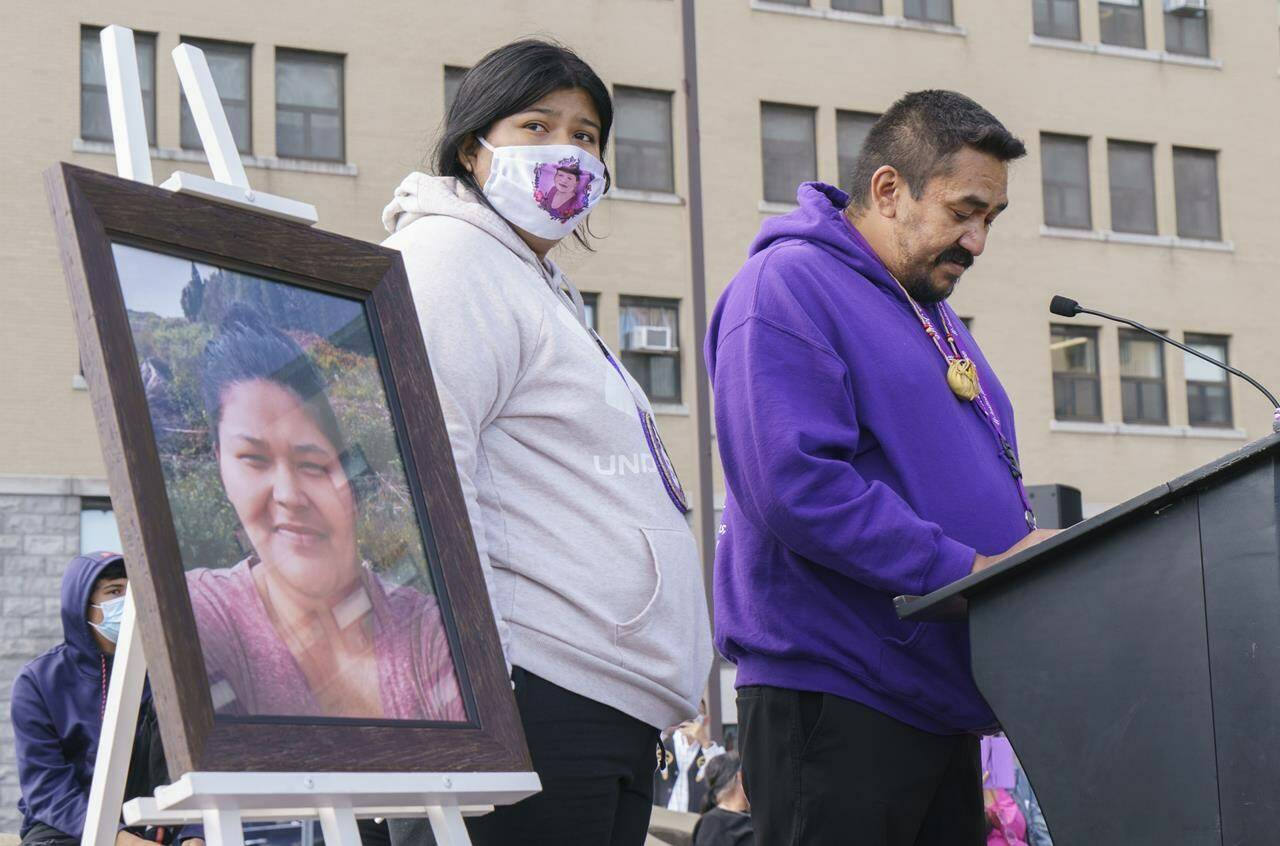From the moment she entered the Joliette hospital in 2020, Joyce Echaquan was falsely labelled as a drug addict because of the ”undeniable” systemic racism and health-care system failings that contributed to her death, a Quebec coroner said Tuesday.
Géhane Kamel’s report into Echaquan’s death found that her demise was accidental, but avoidable. As she presented her report on Tuesday, Kamel said the 37-year-old Atikamekw mother of seven would likely still be alive if she were a white woman.
The coroner reiterated her recommendation that the government should recognize the existence of systemic racism and make a commitment to root it out of institutions — something the Legault government has steadfastly refused to do.
“We have witnessed an unacceptable death, and we must ensure that it is not in vain,” Kamel told reporters. “It is unacceptable that large sections of our society deny such a well-documented reality.”
In Quebec City, Premier François Legault told reporters he agreed that Echaquan was subjected to prejudice, discrimination and racism at the Joliette hospital.
But the premier maintained that systemic racism does not exist in the province, blaming what happened to Echaquan on some health-care employees and quoting a definition of “systemic” from the dictionary to back up his position.
Legault says that for him, a system is something that “starts from the top.” While some employees or managers may engage in discriminatory practices, he said, they are not ordered to do so from their superiors.
“The point is not who is right,” Legault said. “The goal is that we all work together to fight prejudice, discrimination and racism.”
Echaquan filmed herself on Facebook Live as a nurse and an orderly were heard making derogatory comments toward her shortly before her death Sept. 28, 2020, at a hospital in Joliette, northeast of Montreal.
The video of her treatment went viral and drew outrage and condemnation, and the coroner’s final report into her death concluded her initial diagnosis was based on prejudice and she wasn’t properly monitored before finally being transferred to intensive care.
Echaquan died of a pulmonary edema that was linked to a rare heart condition.
Kamel said she wouldn’t get involved in a political debate, but maintained that systemic racism was “undeniable” in Echaquan’s case.
“From the first minute she entered the hospital, a label was placed on Ms. Echaquan,” she said.
Kamel said medical staff, who assumed Echaquan was experiencing opioid withdrawal, failed to properly evaluate the medications she was taking and ignored the symptoms she described, including heart palpitations.
Later, after Echaquan became agitated and fell from bed twice, she was branded “theatrical” and strapped down. Health-care workers didn’t explore alternatives to calm her down or reassure her, such as calling the hospital’s Atikamekw liaison officer, Kamel said.
But while she maintains that racism played a part in Echaquan’s death, Kamel noted that it wasn’t the only factor. She said emergency room overcrowding and a lack of trained staff on the floor meant that there weren’t enough people to supervise Echaquan once she was restrained. There was also was a failure to notice and react quickly enough when her condition began to deteriorate, the coroner added.
She urged decision-makers to give equal weight to her other recommendations, which include better staff-to-patient ratios, improved communication between health authorities when it comes to patient medication, and more training for staff on racial sensitivity and standards of care.
Kamel became emotional when she thought about Echaquan’s daughter trying to comfort her dying mother at her bedside, and she said her hope is that her report will be an invitation to a discussion and reconciliation with Indigenous groups.
“In the name of her partner, her children, for this Indigenous nation, let’s come together to extend a hand,” she said.
Echaquan’s family will speak to reporters later on Tuesday.
—Morgan Lowrie, The Canadian Press
RELATED: Joyce Echaquan’s loved ones urge action on racism on anniversary of her death

